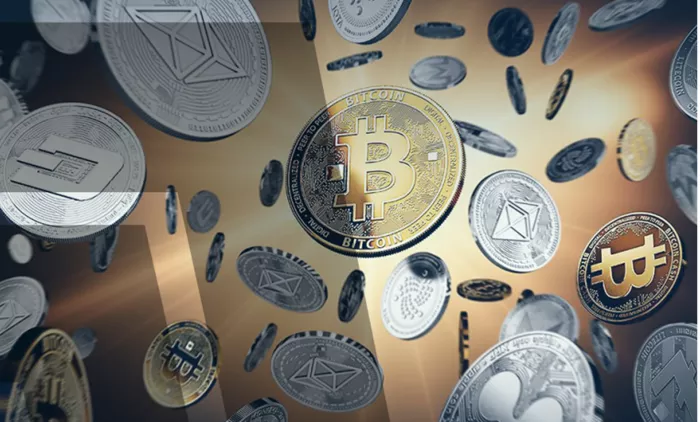South Korea has taken a significant step toward shaping the future of its cryptocurrency market by introducing landmark legislation aimed at regulating digital assets, with a particular emphasis on establishing a comprehensive framework for Korean stablecoins. This move is designed not only to bolster financial security but also to promote innovation and sustainable growth within the fast-evolving digital asset ecosystem.
Comprehensive Legal Framework and Licensing for Stablecoins
The bill, spearheaded by Min Byung-deok, a lawmaker from the ruling party, lays out a detailed legal structure that governs the issuance and management of stablecoins in South Korea. Central to the legislation is the introduction of a licensing system for stablecoin issuers, ensuring that these entities operate under stringent regulatory oversight. This licensing requirement aims to foster a supervised, scalable digital currency market that can unlock significant economic opportunities while safeguarding consumer interests.
Among the key provisions, the legislation mandates that stablecoin issuers maintain a minimum capital of 500 million won (around $368,000). While this capital threshold sets a relatively high entry barrier, it is intended to underpin market stability and investor confidence by ensuring that only financially sound entities can participate. The capital requirements serve as a foundational safeguard against potential insolvency risks that could otherwise undermine the integrity of the stablecoin ecosystem.
President’s Support and the Move Toward Financial Sovereignty
South Korean President Lee Jae-myung has publicly supported the legislative direction, stressing the critical importance of pegging Korean stablecoins directly to the national currency, the won. This approach is designed to enhance South Korea’s financial sovereignty by reducing dependence on foreign stablecoins, such as the widely used USDT and USDC. By fostering a domestic stablecoin ecosystem anchored to the won, South Korea aims to strengthen its monetary policy autonomy while offering citizens a trusted digital currency alternative.
Establishing a Mature Regulatory Environment
Beyond the focus on Korean stablecoins, the new law expands the regulatory landscape by providing clear legal definitions for digital assets broadly. It authorizes the formation of a dedicated digital committee, which will operate under the direct supervision of the president. This body will play a crucial role in developing and enforcing a mature legal framework that supports the growth of decentralized finance (DeFi) protocols and digital exchanges both within South Korea and on the international stage.
The legislation also introduces robust safeguards against illicit activities, including strict prohibitions on insider trading, market manipulation, and fraudulent conduct. These measures are intended to boost investor confidence and encourage responsible participation in the digital asset market, which has historically faced challenges related to regulatory gaps and security concerns.
Drawing from Global Regulatory Models
South Korea’s finance minister has highlighted that the legislation draws on best practices from leading regulatory frameworks worldwide, including those in the United States, the European Union, Japan, and Hong Kong. Notably, the bill adopts Hong Kong’s licensing regime for stablecoin issuers, which is recognized for balancing regulatory rigor with market innovation. This international benchmarking reflects South Korea’s ambition to position itself as a frontrunner in global digital asset regulation.
Market Impact and Industry Response
The regulatory developments have already begun to influence market dynamics. The Kakao-backed Kaia platform announced plans to launch a Korean stablecoin pegged to the won, marking a significant alignment between government policy and industry innovation. This announcement triggered a 30% surge in Kakao Pay’s share price, signaling strong investor optimism. Similarly, Danal, a competitor in the digital payments space, also experienced stock gains amid positive market sentiment.
Public interest in cryptocurrencies remains robust in South Korea. Recent surveys reveal that more than half of South Korean investors intend to increase their cryptocurrency holdings, reflecting a growing appetite for digital assets supported by a clearer regulatory environment. The planned introduction of won-backed stablecoins is expected to further stimulate participation and trust in the domestic cryptocurrency market.
Looking Ahead
South Korea’s pioneering legislation represents a decisive step toward cultivating a well-regulated, innovative, and secure cryptocurrency ecosystem. By implementing a rigorous licensing framework, enhancing legal clarity, and introducing strong investor protections, the country aims to create a digital asset market that can thrive domestically while competing effectively on the global stage.
As the digital currency landscape continues to evolve rapidly, South Korea’s approach may serve as a blueprint for other nations seeking to balance the twin objectives of financial security and technological advancement. The collaboration between policymakers, industry players like Kakao, and the broader investment community underscores a shared commitment to building a resilient and forward-looking digital economy anchored by trusted domestic stablecoins.
Related Topics:
Cryptocurrency Crimes Escalate from Online Scams to Real-World Violence
Trump’s Crypto Overhaul Signals Industry Shift
House Introduces New Bill to Regulate Cryptocurrency

